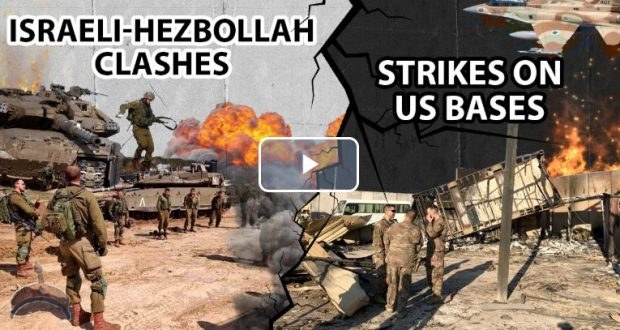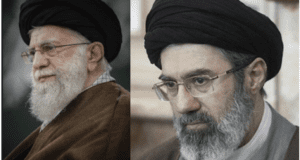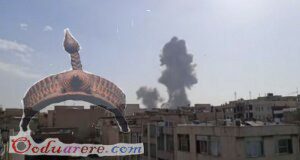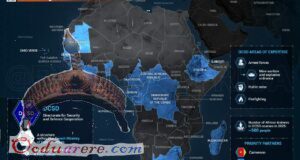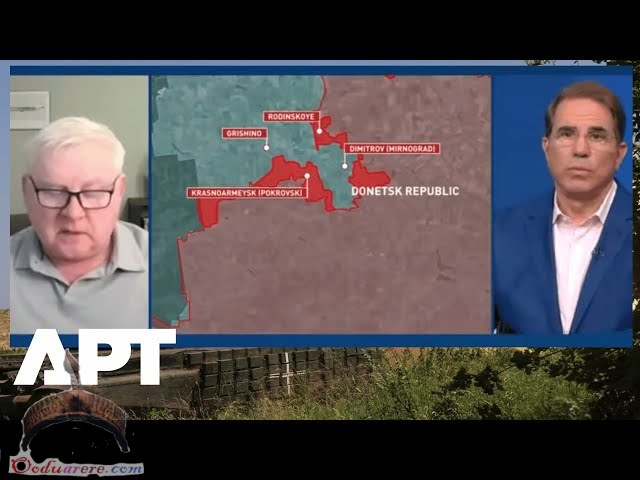On July 27, fighting broke out between Israeli forces and Hezbollah along the Israeli-Lebanese contact line. This became the heaviest open confrontation between the sides in about a year. The incident occurred in an area known as Chebaa Farms, which was occupied by Israel in the 1967 Middle East war.
Israeli shelling started at around 3:30 p.m. local time which lasted for about an hour and a half. The Israeli Defense Forces (IDF) claimed that they had repelled an infiltration attempt by a Hezbollah unit and there were no casualties among IDF forces. The exchange of fire came as the IDF was on heightened alert for a possible attack by Hezbollah, after an Israeli airstrike in Syria killed a Hezbollah member earlier in July.
In a televised address, Israeli Prime Minister Benjamin Netanyahu warned Hezbollah that it is “playing with fire,” and stated that “Hezbollah and Lebanon bear full responsibility for this incident and any attack from Lebanese territory against Israel.”
In its own turn, pro-Hezbollah sources claimed that Hezbollah targeted a vehicle and a battle tank of the IDF with anti-tank guided missiles.
Hezbollah itself described Israeli claims about the outcome of the clashes as fake and aimed to boost the morale of Israeli forces by fabricating fictitious victories. It also rejected reports about strikes on IDF targets.
“The answer to the martyrdom of [our] brother, Ali Kamel Mohsen, in the vicinity of Damascus airport has not been given yet. Zionist occupiers must still wait for that answer and their punishment at the hands of the resistance forces,” Hezbollah said.
A few hours after the incident on the Lebanese-Israeli contact line, rockets struck US-operated military bases in Iraq. The strike on Camp Speicher, located near Tikrit, caused a large explosion on the site. At the same time, at least three rockets targeted another US-operated military base – Camp Taji, located near Baghdad. According to local media, one rocket hit an Iraqi helicopter while another landed in an artillery weapon depot. The third rocket landed in the area of the 2nd Air Force Squadron but did not explode.
Local sources claim that the strikes came in response to a drone strike on the al-Saqer military camp, south of Baghdad, on July 26. This camp is operated by the Popular Mobilization Units. This branch of the Iraqi Armed Forces is often described by Washington and mainstream media as Iranian proxies and even terrorists.
Even if the incidents in Iraq and the Lebanese-Israeli border were not linked, they serve as strong evidence of the escalating tensions in the Middle East. Despite the defeat of ISIS and the relative de-escalation of the conflict in Syria, the region still remains in a permanent state of escalation. However, now, the source of these tensions is the developing conflict between the Israeli-US bloc and Iranian-led forces.
 Ọmọ Oòduà Naija Gist | News From Nigeria | Entertainment gist Nigeria|Networking|News.. Visit for Nigeria breaking news , Nigerian Movies , Naija music , Jobs In Nigeria , Naija News , Nollywood, Gist and more
Ọmọ Oòduà Naija Gist | News From Nigeria | Entertainment gist Nigeria|Networking|News.. Visit for Nigeria breaking news , Nigerian Movies , Naija music , Jobs In Nigeria , Naija News , Nollywood, Gist and more

